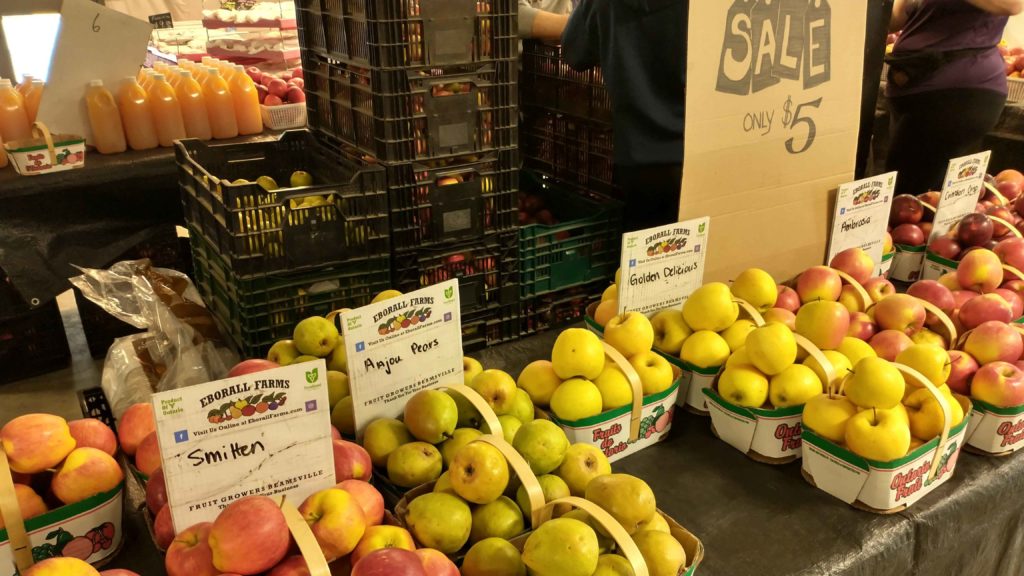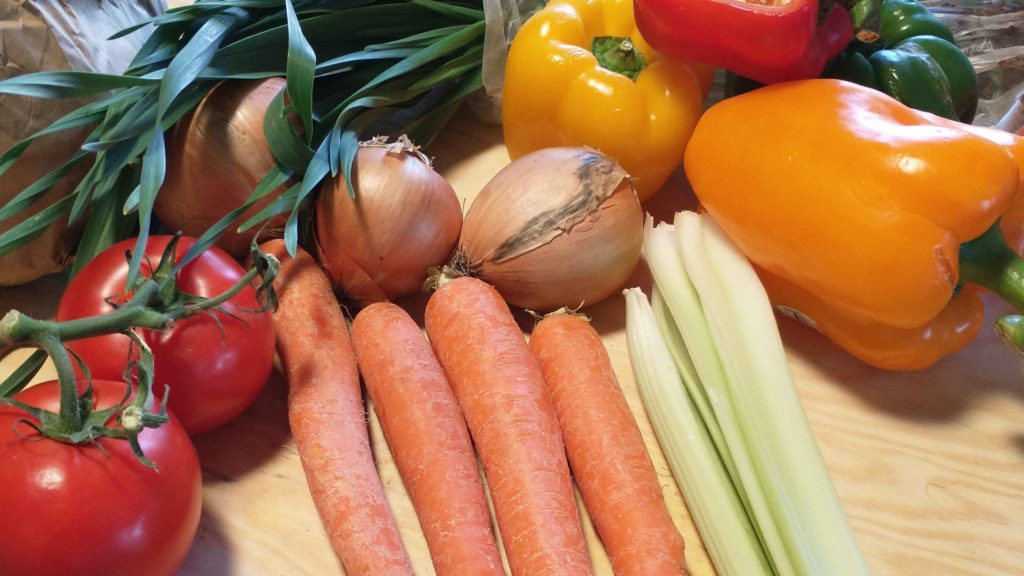When I was growing up, eating out was a special treat. And it involved certain unofficial rituals. One of which was that, at some point during the meal, my mother would declare that she could have made this at home for much cheaper.
She was right, of course. But somehow it ruined the magic of that special moment. Because now a soupçon of guilt had been added to our feast.
I am not here to make you feel guilty or to take away from the joy of a meal out. But I am here to assure you that you can cook and that if you do cook, even just a little, you will save money on food. And you’ll probably be eating healthier, too. Bonus!
Some reasons to get cooking
1. Buying your own food and cooking it will save you money.
This is almost a no-brainer, but let’s give some space to this thought since it is really important. Comparing like for like, what you pay for a meal in a restaurant will always cost more than if you bought the same ingredients and cooked the meal yourself. Now, of course, the restaurant is buying in bulk and wholesale, but they also have all kinds of other expenses (rent, salaries, insurance) while trying to turn a profit – notoriously difficult in the food service industry. So you are paying for much more than the cost of the food you are eating.
On the other hand, you could probably eat out for cheaper than you can make a good meal at home, but that is probably an indication of the quality of the food being sold to you (more on this below at #3).
2. You can control what ends up on your plate.
We’ve all been there, right? You’re looking at the menu, and you think, “I really want chicken, but it comes with broccoli, and I hate broccoli. I like the potatoes that come with the beef, but the beef is too expensive. And, oh look, asparagus, but it only comes with the fish.”
At home, you can have chicken and asparagus and potatoes just the way you want. And in the proportions you want. And with whatever sauce you want. When it comes to a meal, there’s a lot to be said for control.
3. You can control the quality of your food.
I recognize that this is not something that will matter to everyone, but it matters to some people, and it does matter to me. The vast majority of establishments will not tell you the sources of their meat and produce. Even if you ask, they probably don’t know. If you buy food at the grocery store, there are usually labels so you can buy local, if that’s important to you. And if you go to the farmer’s market, you can even buy food directly from the people who produce it. They can tell you everything you want to know about how their chickens are raised or when the peaches were picked. And most food at the market will be fresher and last longer than what you buy in the store. But at the restaurant? Who really knows?
And what if you’re trying to avoid additives and preservatives, stabilizers, emulsifiers and flavour enhancers? Good luck. Unless you’re making meals yourself from identifiable food ingredients, you really can’t be certain what you’re ingesting.

4. The intangibles
I’m throwing this last one in here because although it’s harder to define, I think it’s just as important as saving money and controlling your ingredients. Learning to cook is a skill. And even if you know some cooking skills, there’s always more you can learn. Learning new skills, using skills, improving skills: it all contributes to good mental health. Making your own meals changes your relationship with food. It gives a certain something that I can only call familiarity and intimacy. It gives you a connection to the earth and the world around you. Dare I say, it makes you more human.
I recognize that not everyone will derive the same pleasure from cooking or the same joy from a meal well-made or the same satisfaction from learning a new technique or cuisine. But it’s worth a shot.
Common cooking barriers
Despite the clear benefits of cooking, a lot of people who would otherwise like to start cooking or to cook more often face certain barriers.
1. I don’t have enough time to cook.
This is the one I hear most often. And for some, very few people, it might be true. But for the majority of people, the barrier is mental more than anything else. But mental barriers are real barriers.
Part of the problem is that we hear it so often, it becomes ingrained in our minds. And our culture’s constant message is that busy people are important people. And who doesn’t want to be important?
But I’ll let you in on two secrets – one perhaps harder to accept than the other:
1) You do have the time. If you prioritize cooking and do a little planning, you will find that you really do have time to cook.
2) Cooking really doesn’t take up a lot of time – at least it doesn’t have to. Depending on your schedule, you can choose meals that are quick to cook (like stir-fry) or meals that take longer to cook but require minimal prep (like beef stew or roast chicken). And if you choose one-pot meals, that also minimizes clean up afterwards.
You can easily look up ideas online. Or check out your local library for whole books devoted to 30-minute meals or one-pot dinners – or whatever it is you’re looking for.

2. I don’t know how to cook.
This is a more significant barrier, but not an insurmountable one if you’re willing to get started. And as long as you’re willing to fail. No one is born knowing how to cook.
Whether you’re starting from absolute zero or you already have some of the basics, the first step is just getting started. Bite that bullet and give it a go! And, as I’ve already said, don’t be afraid to fail. It’s all part of learning and developing a skill.
It can feel like a huge hurdle. It may even be scary. But I guarantee you, if you put in the time and effort to learn to cook, it is an investment that will pay off a thousandfold in terms of money saved and improved mental and physical wellbeing. So let’s get cooking!
Some options for where to start:
1) Ask someone to teach you.
For countless generations, cooking skills have been handed down from person to person, through families, communities and apprenticeships. You might know someone – a friend or family member – who cooks well and might be willing to teach you. Most people are willing to share with others about the things they love and do well.
Keep in mind that not everyone is a natural teacher. But remember, too, that there are many ways to learn from another person’s experience. I hardly did any cooking growing up, but I did spend years watching my mother cook, cleaning and chopping vegetables, and cooking simple side dishes like pasta, potatoes and rice (to my mother’s clear instructions), so when it came time for me to start cooking, I only had to put together the basics that were already ingrained in me (a bit like Mr. Miyagi’s method in The Karate Kid.)
So you might start out by just watching and asking questions. And maybe eventually, you can graduate to vegetable prep. In any case, you can always offer to wash dishes in return. Just make sure you don’t get so engrossed in washing up that you miss the important parts!
2) Take a cooking class.
Maybe what you need is a professionally-taught class with other newbies. Check out places like your local community college, public school or library system (which might have continuing education courses), or community centre. Different organizations will have different price points, but you should find one that works for you.
3) Watch free videos online.
To say that the internet has a wealth of cooking resources is a gross understatement. In fact, it can often be overwhelming. But if you take the time to explore the options out there, you’ll probably find a few blogs or channels that you like and can keep coming back to until you’re ready to find more.
Unfortunately, it seems that even cooks who label their videos as “for beginners” really don’t have the true beginner in mind. They’ve forgotten that there are people who don’t know how to tell when water is boiling or how to handle a knife. So if you want to try learning exclusively through the internet, you may need to search for the specific techniques you want to learn. Or look up specific recipes and watch very closely.
However, I would advise, if possible, that you use #3 in combination with #1 or #2. As wonderful as the internet is as a resource, there really is no replacement for learning from another person.
Let’s get cooking!
Whether you’re struggling to find the time or you don’t yet have the necessary skills, or maybe you just lack a bit of confidence or motivation, getting started is the hardest part. And once you’re over the first hurdle, the key is momentum. Give yourself a goal – perhaps one or two home-cooked meals a week. (Tip: If you cook once but double the recipe, you’ll get two meals, often with the same effort as though you were only making one.)
Once that becomes normal – and, I hope, easier – maybe you’ll want to increase your goal. And the more you cook, the more you can branch out and try different recipes.
Keep track of how much money you’ve saved by cooking at home, and then maybe take a little bit of that money you’ve saved and go buy yourself a treat. You deserve it!
